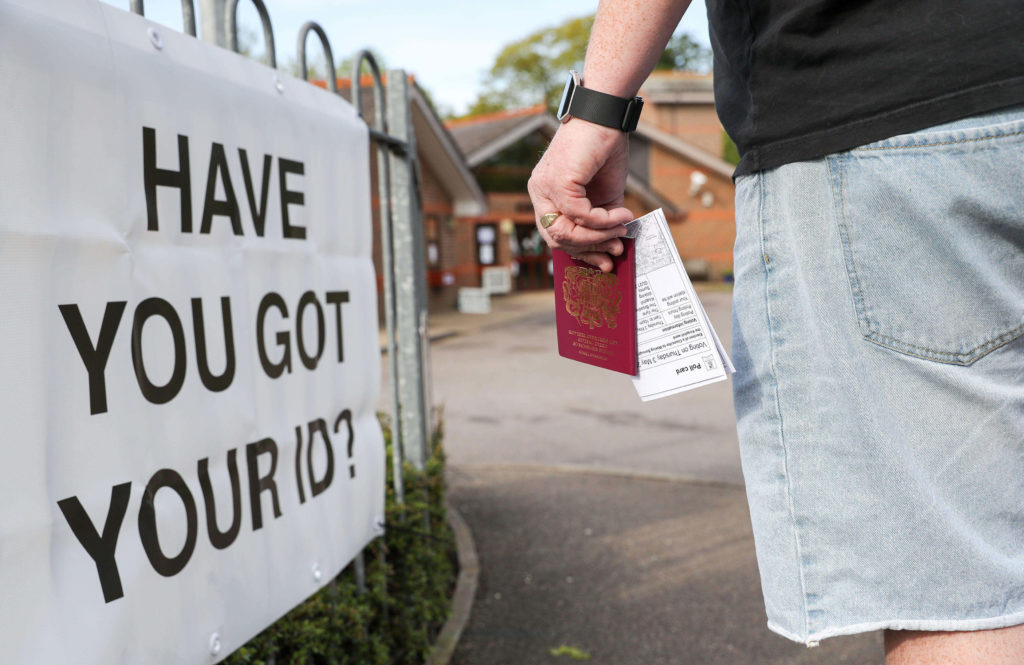Around 14,000 people were prevented from voting in this year’s local elections because they could not produce the required form of photo ID, according to new data from the Electoral Commission.
New data from the vote on 4 May shows that approximately 14,000 (or 0.25% of people) who went to a polling station were unable to vote.
The figures also suggested that “disabled people and those who are unemployed were more likely than other groups to give a reason related to ID for not voting”.
The true figure is said to be higher given that some prospective voters might have turned away from their polling station having read the requirements on vote ID at the entrance. These would not have been fully recorded, the Commission said.


The Electoral Commission, which is an independent body, said the figures on people being turned away were “concerning”.
Accepted forms of ID include passports, driving licences and blue badges. The local elections on 4 May were the first time the controversial new rules on voter ID were tested.
Craig Westwood, director of communications at the commission, said the “majority of voters” were able to vote during the local elections. But he added: “Some people were prevented from voting in polling stations due to the requirement, and significantly more did not attempt to because they lacked the required ID”.
Mr Westwood said more work would need to be done to improve the situation ahead of a full report in September.
In May, former cabinet minister Jacob Rees-Mogg MP claimed the new voter ID rules were an attempt by his Conservative party to “gerrymander” the local elections.
Speaking at the National Conservatism Conference, he said: “Parties that try and gerrymander end up finding their clever scheme comes back to bite them, as dare I say we found by insisting on voter ID for elections.
“We found the people who didn’t have ID were elderly and they by and large voted Conservative, so we made it hard for our own voters and we upset a system that worked perfectly well.”
The Electoral Commission said the figures nonetheless showed a “very high awareness” of the new rules on voter ID, with over half of those who arrived at polling stations aware of the free certificates programme.
Responding to the data, deputy Labour leader Angela Rayner said that it was “particularly alarming that under-represented groups look to have been more likely” to have been denied a vote. She added that the voter ID rules are having a “chilling effect on democracy”.
“Jacob Rees-Mogg’s admission that this shabby scheme was designed to rig the rules to lock voters out revealed the cold truth behind it”, she said in a statement.
Helen Morgan, the Liberal Democrat’s Local government spokesperson, said: “It looks like a transparent attempt at voter suppression by Conservative ministers who are desperate to stop people from holding them to account by any means possible”.
The SNP described it as a “damaging threat to democracy in the UK”.
The House of Commons levelling up, housing and communities select committee announced yesterday that it will question the Electoral Commission and election administrators on July 3 to understand the impact of the new law.

